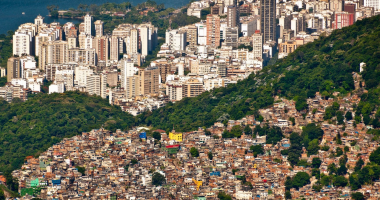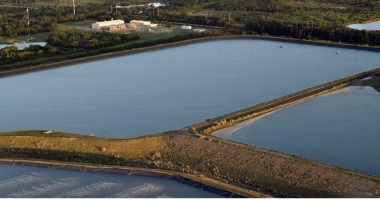Climate, Health and Equity Brief
Mortgages, Monsoons and Mosquitoes
October 3, 2019

Hot Topic: Economics. The increasing economic impact of the climate crisis continues to percolate in countries large and small. In the U.S., research released Monday has found that U.S. banks are protecting themselves from climate change by shifting riskier mortgages, such as those in coastal areas, off their books and over to the federal government, effectively transferring the financial risk to U.S. taxpayers.
In India, the annual monsoon season has overrun by almost a month, bringing 37% more rainfall than normal, causing deaths from collapsing buildings, and causing many vital crops to rot. For consumers, the impact of the late-receding monsoon has meant a steep rise in the price of onions, an essential ingredient in Indian food, which are now selling for four times their normal price.
And a cluster of nine small island nations in the Pacific, led by Nauru, are warning of the potential for ‘economic Armageddon’ as they face the dual threat of sea-level rise and the destruction it would bring to the tuna fishing industry, which serves as the engine of their economies through the $6 billion it brings annually to the islands.
How will history remember the leaders who refused urgent action despite emissions-as-usual threatening investments, livelihoods and entire economies around the globe?
—Matt & Traci, GMMB
Health
Germany recorded its first-ever transmission of West Nile Virus as disease-carrying mosquitoes continue to move north into countries where temperatures were previously too cold for them to survive. (The Independent)
Nearly a month after the typical end of its monsoon season, India has endured another deadly monsoon that has killed more than 100 people and caused vital crops to rot. (The Guardian)
Last year, coal power decreased by six percent across the U.S., which led to a significant reduction in emissions—but emissions from remaining plants have soared as a result of the Trump Administration rolling back Obama-era environmental regulations. (E&E News)
Equity
African American historical sites are threatened by increased flooding in the South but lack funding for preservation efforts. (Southerly)
Nauru is among nine small island nations at risk of ‘economic Armageddon’ as rising sea levels threaten their sustainable tuna fisheries, which generate $6 billion annually. (UN News)
Politics & Economy
New research has found that banks are shifting mortgages with higher climate change risks—like those in coastal flood zones—to federal government programs like Fannie Mae and Freddie Mac, transferring the financial risk onto taxpayers. (The New York Times)
Major wheat exporters are expected to endure increasingly frequent droughts that will complicate wheat production, limit crops available for export and cause a spike in food prices. (Newsweek)
Action
Massachusetts leads the 2019 State Energy Scorecard after announcing a three-year energy efficiency plan and reducing greenhouse gases 3.4 percent since 1990. (U.S. News)
San Francisco’s Municipal Transit Agency has established nine new green zones in which buses will switch to all-electric battery power to reduce emissions in low-income neighborhoods. (San Francisco Chronicle)
Kicker
This month in our periodic interview series with the movers and shakers in the fight against climate change, we talk with Brady Walkinshaw, CEO of Grist, about the news outlet’s approach to fighting for ‘a planet that doesn’t burn and a future that doesn’t suck.’ (GMMB)
“Fighting climate change isn’t just an obligation we owe to future generations. It’s also an opportunity to improve public health—and drive economic growth—in the here and now.”
—Michael Bloomberg
Have feedback on this issue? Email us.






